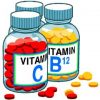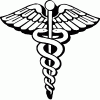Take Two Tweets and Call Me in the Morning: Doctors and the Hazards of Social Media

In our modern age, technology has contributed immensely to advances in medicine and patient care — from x-rays to defibrillators to artificial hearts — but like everything, there is a downside to technology, and like most technological downsides, social media is involved in some way. Doctors are human, and like other humans, they can become sucked in by the allure of the social connectivity of sites like Facebook and Twitter, sometimes at the expense of their professionalism — and in turn, their jobs.
Rhode Island doctor Alexandra Thran found out about the repercussions of Internet misuse the hard way when she posted (anonymous) information about a trauma patient online in 2010 and found herself fired, fined and stripped of her ability to work in an emergency room.
A 2011 George Washington University study, for instance, examined over 5,000 “tweets” from doctors during a one-month period and found that 4% of them as unprofessional, citing them as containing “profanity, potential patient privacy violations, sexually explicit material and/or discriminatory statements,” as well as “unsupported claims about a product for sale on the doctor’s Web site or repeated promotions of specific health products.” A year later, a University of California survey found that nearly half of the executive directors of medical licensing boards had received complaints about physicians’ online conduct, including sexual behavior and misrepresenting credentials.
Despite the American Medical Association’s adoption in 2010 of a policy for online behavior that advised doctors to “maintain appropriate boundaries of the patient-physician relationship when interacting with patients online” and to “routinely monitor their own Internet presence to ensure that the personal and professional information on their own sites and content posted about them by others, is accurate and appropriate,” things apparently weren’t sinking in, so the American College of Physicians and the Federation of State Medical Boards have just issued a very detailed analysis of the potential impact of doctor-patient online fraternization. Their recommendations to doctors? Basically, maintain an ethical, arm’s length distance between yourselves and patients: don’t “friend” patients on Facebook; don’t text patients; keep your online job profile separate from your personal profile; and for goodness’ sake, don’t take a cell phone pic of a patient’s penis during surgery.
(Sources: Boston.com, U.S.News & World Report, The Journal of American Medicine Association, American Medical Association, Annals of Internal Medicine)







